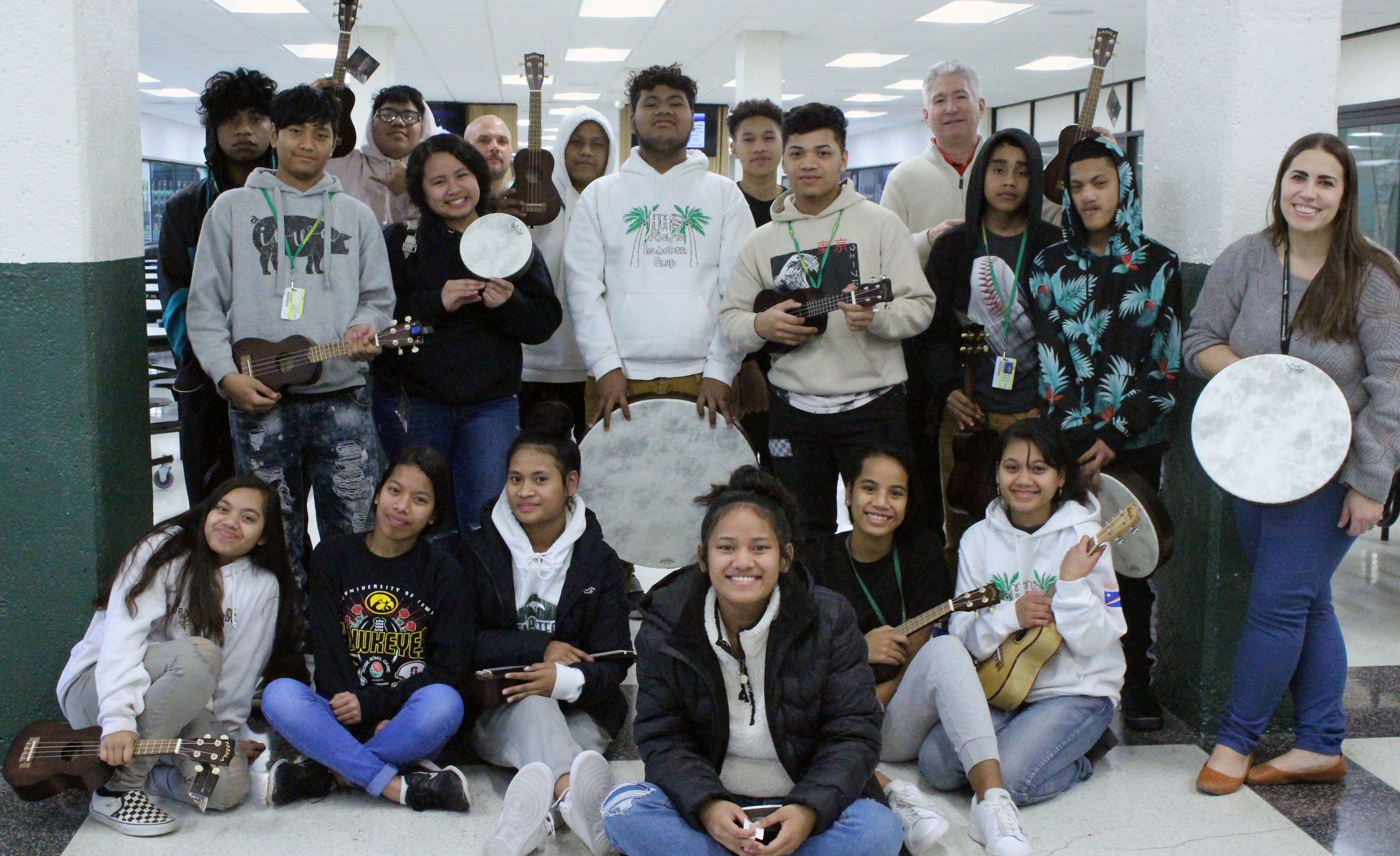Dubuque - Addressing Absenteeism in Dubuque's Marshallese Community
College of Law students who are part of the Community Empowerment Law Project worked with the Community Foundation of Greater Dubuque to better understand the issue of chronic absenteeism among Marshallese students. In addition to synthesizing reasons for the problem, they also identified solutions.
Since the Covid pandemic, absenteeism rates across the country have risen dramatically. Dubuque is not alone. More than 30% of Dubuque’s K-12 students experience chronic absenteeism. For Pacific Islander students, however, the rate is closer to 78%. Chronic absenteeism is defined as missing at least 10% of days in a school year, which generally translates to 15-20 days absent. It is a predictor of low academic success and which students may drop-out entirely. Students who are chronically absent are at higher risk for “poor labor market prospects, diminished health, and increased involvement with the criminal legal system.”
In late 2023, The Community Foundation of Greater Dubuque, whose mission is to “strengthen communities and inspire giving” and to build “a vibrant and inclusive Dubuque region with resources and opportunities for all,” formed a committee to examine this issue. They asked the CELP team to accelerate their process by performing interviews, research, and synthesis of their findings to ascertain the reasons for the issue and identify possible responses. The team met with a wide swath of stakeholders, including leaders in the Marshallese community, school officials, students, and representatives from other nonprofits.
The CELP team identified lack of belonging as a root reason that Marshallese students are not attending school. This includes:
- lack of aspirations for post-secondary school (i.e., students don't see a reason to attend post-secondary school, so they don't feel they belong to the academic fabric of the schools);
- bullying;
- large class sizes;
- and a lack of role models.
They identified barriers to communications and school attendance, including:
- families share a single phone
- city buses are inconvenient to students' locations
- late night church services and early morning household chores effect students' sleep.
Among their recommendations were cultural competency for school staff, parent support groups, student cultural clubs, and improved communication systems. Additionally, they located successful from other parts of the country, including the Marshallese community in Arkansas, that might be employed.
An indirect result of this project was improved connectivity between various nonprofits, the schools, and the Community Foundation of Greater Dubuque.
